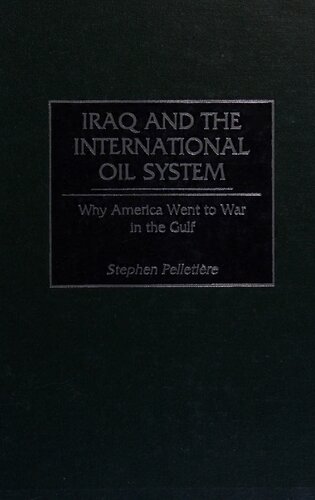

Most ebook files are in PDF format, so you can easily read them using various software such as Foxit Reader or directly on the Google Chrome browser.
Some ebook files are released by publishers in other formats such as .awz, .mobi, .epub, .fb2, etc. You may need to install specific software to read these formats on mobile/PC, such as Calibre.
Please read the tutorial at this link: https://ebookbell.com/faq
We offer FREE conversion to the popular formats you request; however, this may take some time. Therefore, right after payment, please email us, and we will try to provide the service as quickly as possible.
For some exceptional file formats or broken links (if any), please refrain from opening any disputes. Instead, email us first, and we will try to assist within a maximum of 6 hours.
EbookBell Team

0.0
0 reviewsscanned copy of archive materials
Ten years after the end of the Gulf War, the conflict continues with unresolved questions about economic sanctions and Iraq's participation in the oil export system. A specialist in Middle Eastern politics and an intelligence officer, Pelletiére covered the Iran-Iraq War as well as the subsequent Gulf conflict. He argues that Iraq's victory over Iran in 1988 gave the nation the capability of becoming a regional superpower with a strong say in how the Gulf's oil reserves were managed. Because the United States could not tolerate an ultranationalist state with the potential to destabilize the world's economy, war then became inevitable.
This study examines the rise of the international oil system from the 1920s when the great cartel was formed. Comprised of seven companies, it was designed to ensure their continued control over the world's oil supplies. When the companies lost control with the OPEC revolution in 1973, the United States moved into the realm of Gulf politics with the goal of protecting the world economy. Pelletire details how Saddam Hussein unwillingly precipitated the Gulf crisis and why the conflict is not likely to be resolved soon-or peacefully.